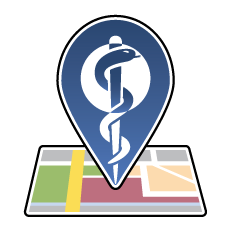Social: #GBSAM21 #starttheGBSconversation, #GBS, #groupbstrep
Twitter: @GroupBStrep
Facebook: @GroupBStrepInternational
YouTube: Group B Strep International
Website: https://www.groupbstrepinternational.org/
This year is the 21st year of July as International Group B Strep Awareness Month being observed. It was created to bring awareness of group B strep to the general public. Since then it has been a focal opportunity for organizations and individuals around the world to tell their stories, share information, and promote healthy outcomes for babies worldwide.
Join our #starttheGBSconversation campaign for ways to share what you know about GBS!
Approximately 1 in 4 pregnant women carry GBS, the leading cause of sepsis and meningitis in newborns according to the U.S Centers for Disease Control and Prevention (CDC). GBS can also infect babies during pregnancy and the first few months of life.
Not all babies exposed to GBS become infected, but, for those who do, the results can be devastating. GBS can cause babies to be miscarried, stillborn, born prematurely, become very sick, have lifelong handicaps, or die. Even babies born to mother who test negative can become infected by group B strep.
Fortunately there are many ways to help protect babies from group B strep. The website contains resources for you learn more about GBS and help prevent its devastating effects.
About 1 in 4 pregnant women "carry" or are "colonized" with group B strep
There are three types of perinatal GBS disease, each with their own prevention challenges:
Prenatal-onset GBS disease (before birth)
Early-onset GBS disease (birth through the first 6 days of life)
Late-onset GBS disease (7 days of age through usually 3 months of age)GBS is a leading cause of sepsis and meningitis in newborns according to the U.S Centers for Disease Control and Prevention (CDC)
It is now the standard of care in several countries for all pregnant women to be routinely tested for GBS with a vaginal/rectal swab test during the 36th or 37th week during each pregnancy unless their urine already cultured positive in the current pregnancy
GBS is a transient bacteria which means that a woman could test negative, but be colonized later in pregnancy and vice versa
GBS is a fast-acting type of bacteria so it is imperative that everyone who takes care of your baby knows the symptoms of possible GBS infection in babies and how to respond.
Group B Strep International
11 El Dorado Court
Pomona, CA 91766
(909) 620-7214
(909) 620-5557 Fax
info@gbs-intl.org
www.groupbstrepinternational.org
Materials available
Contact: Marti Perhach

